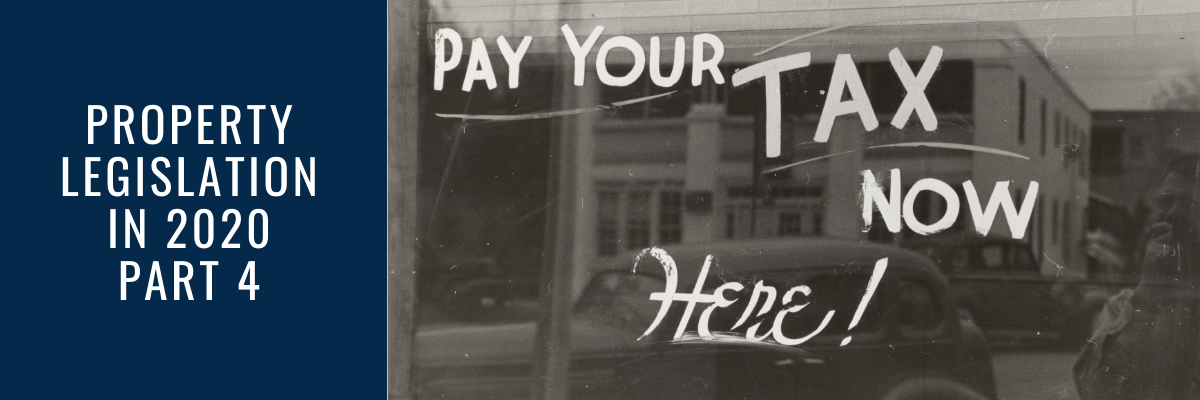Here is part 4 in our series of property legislation in 2020, this article focuses on the tax changes coming into effect this year and how they will impact landlords.
Landlord Income Tax Relief
Former Chancellor George Osborne’s introduced this legislation to gradually reduce landlord income tax relief over four years, starting from 6 April 2017 until it’s fully phased in on 6 April 2020. The new rules were intended to level the tax playing field between homeowners and investors by reducing the income tax relief that landlords can claim on their rental property, such as mortgage interest, interest on loans to buy furnishings and fees incurred when taking out or repaying mortgages or loans.
From April 2020 to 2021, 100% of financing costs incurred by a landlord will be given as a basic rate tax reduction. The final phase reduces the percentage of finance costs deductible from rental income to 0% and raise the percentage of basic rate tax reduction to 100%. This means that from April, landlords will have to pay income tax on the full amount at the basic tax rate of 20%, with the option to claim back 20% of mortgage interest costs as credit.
Capital Gains Tax Relief
Capital gains tax is payable when you sell a property that is not your main residence. In the 2020/2021 tax year, starting on 6 April 2020, capital gains tax is likely to increase significantly for landlords. The tax amount payable is calculated by deducting any private residence relief and lettings relief from your capital gained from the sale of a property.
To read the rest of the legislation coming into effect this year and beyond, we have created a FREE guide, click here to download



 By
By 



Share this with
Email
Facebook
Messenger
Twitter
Pinterest
LinkedIn
Copy this link